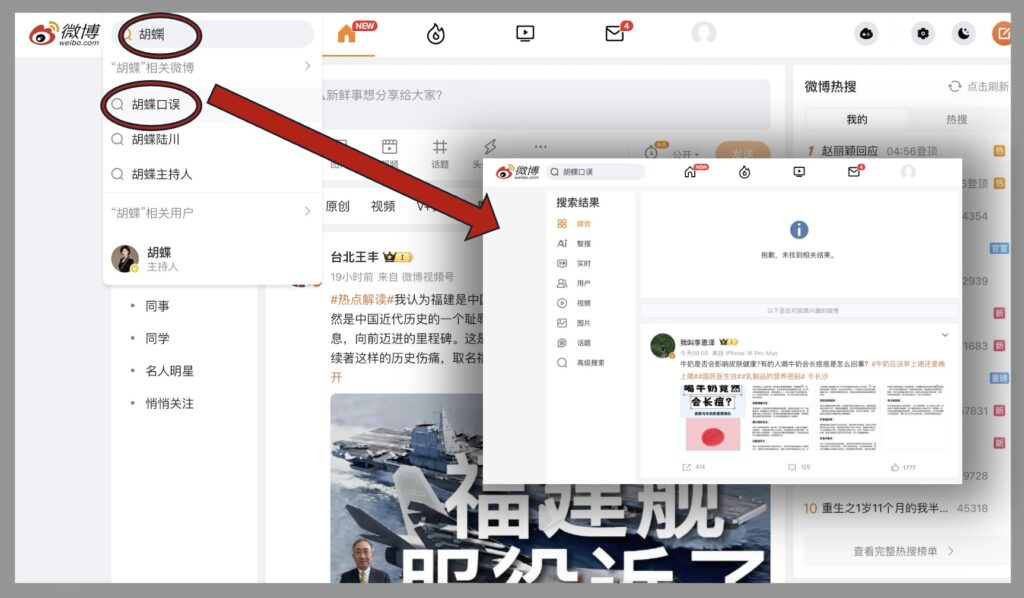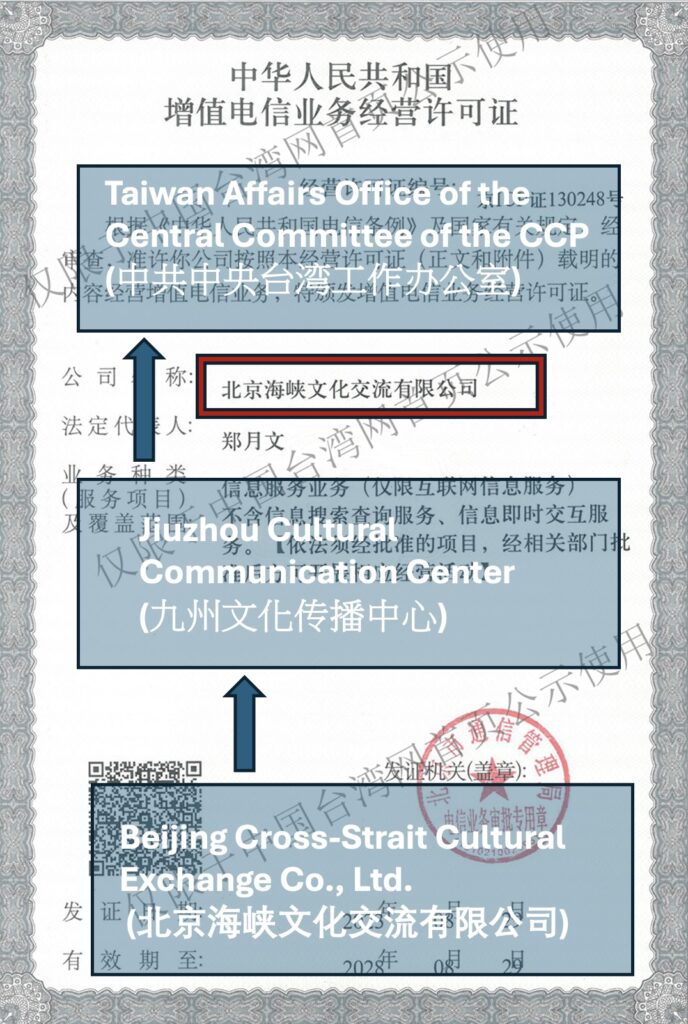
It was meant to be a stiff and routine recitation of the official news — just like every other newscast China Central Television anchor Hu Die had delivered in her 17-year career. But a simple slip of the tongue brought a landslide of repercussions for Hu, who joined the state broadcaster in 2008 after winning its prestigious host competition the year before.
The slip occurred on Tuesday this week during a CCTV-13 newscast on the “Focus On” (共同关注) program, which occupies a prime evening time slot, as Hu recited harshly-worded criticism from China’s Taiwan Affairs Office (TAO) of Taiwan President Lai Ching-te’s (賴清德) May 20 anniversary speech — which in fact avoided clear provocation and offered a measured view of “a Taiwan of the world.” TAO spokesperson Chen Binhua (陳斌華) had responded to Lai’s speech by stressing the leadership’s standard formulation that unification cannot be obstructed, regardless of the position of Taiwan’s government and people.
Relaying Beijing’s position that unification is inevitable, Hu Die said first that “the two countries cannot be obstructed” before stumbling through a correction and concluding that “the motherland will eventually be unified.” Captured in screenshots and video shorts, the momentary lapse spread like wildfire on social media platforms inside and outside China.

Within hours of the broadcast, video clips of Hu Die’s remarks disappeared from CCTV’s website. The authorities also moved swiftly to expunge all versions of the broadcast online and across social media platforms. The swiftness of the effort to restrain all mention of the incident online reflects the extreme sensitivity of the Taiwan issue, which is one of several hard red lines for China’s heavily controlled media.
Users on Weibo entering “Hu Die” in the search field today will immediately see the search option “Hu Die’s verbal gaffe” (胡蝶口误), suggesting this has been a popular search term over the past 72 hours. Results, however, are not available.
Hu Die has not updated her personal account on Weibo since the incident, her last available post dating back to May 9.
Cross-strait messaging is a huge priority for China’s leadership and has its own sprawling apparatus beyond CCP-run central state media. China Taiwan Online (中国台湾网), for example, is a full-fledged website dedicated to Taiwan news, culture and exchange. The site’s ICP registration links it to Beijing Cross-Strait Cultural Exchange Co., Ltd. (北京海峡文化交流有限公司), a company held by another enterprise, Jiuzhou Cultural Communication Center (九州文化传播中心). This entity is in fact a state-run institution (事业单位) under the Taiwan Affairs Office of the Central Committee of the CCP (中共中央台湾工作办公室).

All media in China are bound by the political principle of “correct guidance of public opinion” (正確輿論導向), dating back to June 1989 and the aftermath of political protests that year and their brutal crackdown in Beijing. Central state media, such as China Central Television (CCTV) and the government’s Xinhua News Agency, serve as the vanguards of this policy and are held to the strictest standards.
The timing of Hu’s monumental error — for that is how CCTV’s management and the authorities are sure to regard it — proves especially sensitive given escalating tensions between China and Taiwan under Lai’s presidency. The CCP leadership in Beijing views Taiwan’s ruling Democratic Progressive Party (DPP) and its leader as dangerous forces of separatism, and it has
intensified military pressure around Taiwan since Lai’s inauguration. China conducted major military exercises following Lai’s inauguration speech in May 2024, and has since maintained elevated levels of military activity in the Taiwan Strait.
It remains to be seen what the snafu will mean for Hu Die, a 42-year-old anchor from Shaanxi province who has built a reputation as one of China Central Television’s most trusted faces, hosting such flagship programs as “Morning News” and serving as a chief on-camera reporter.




















